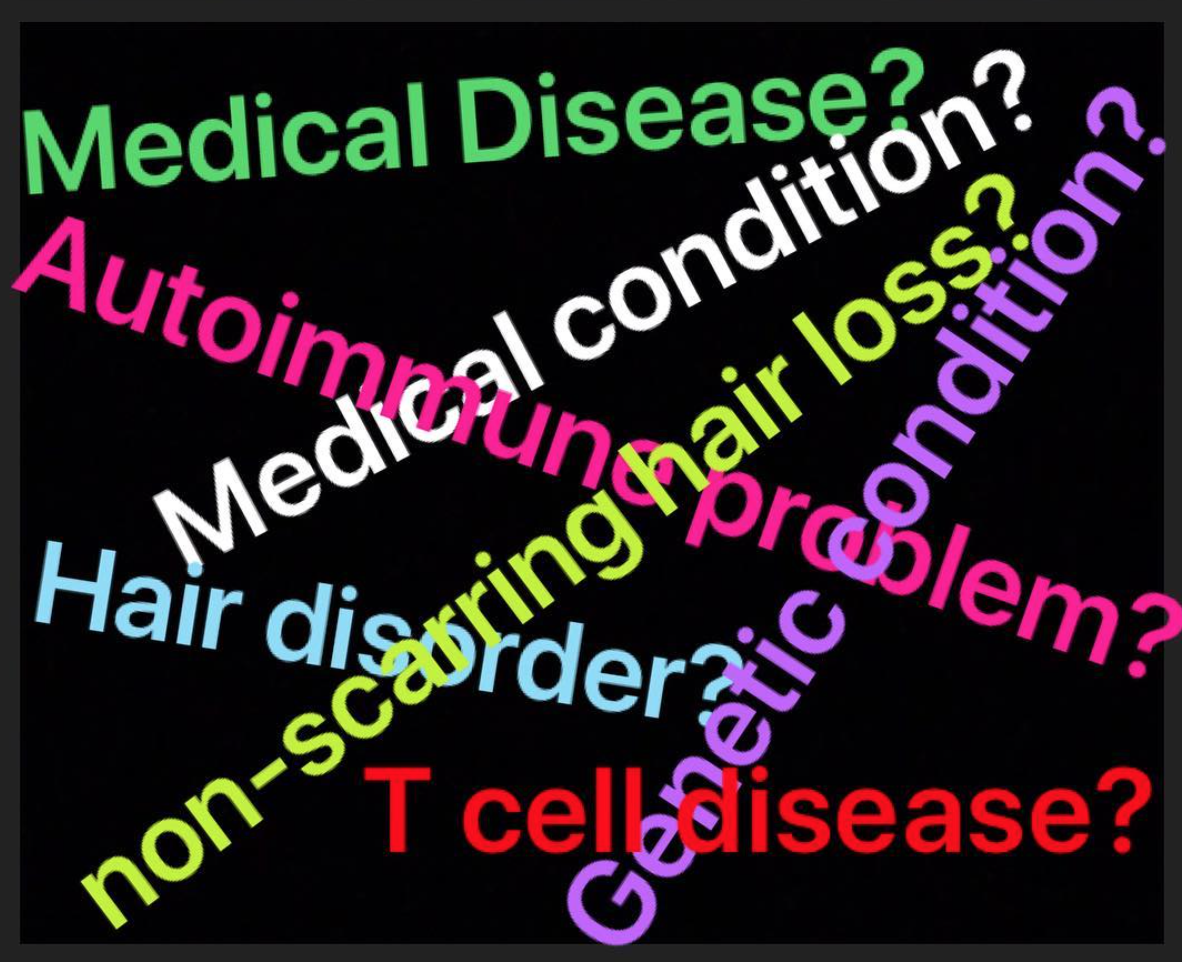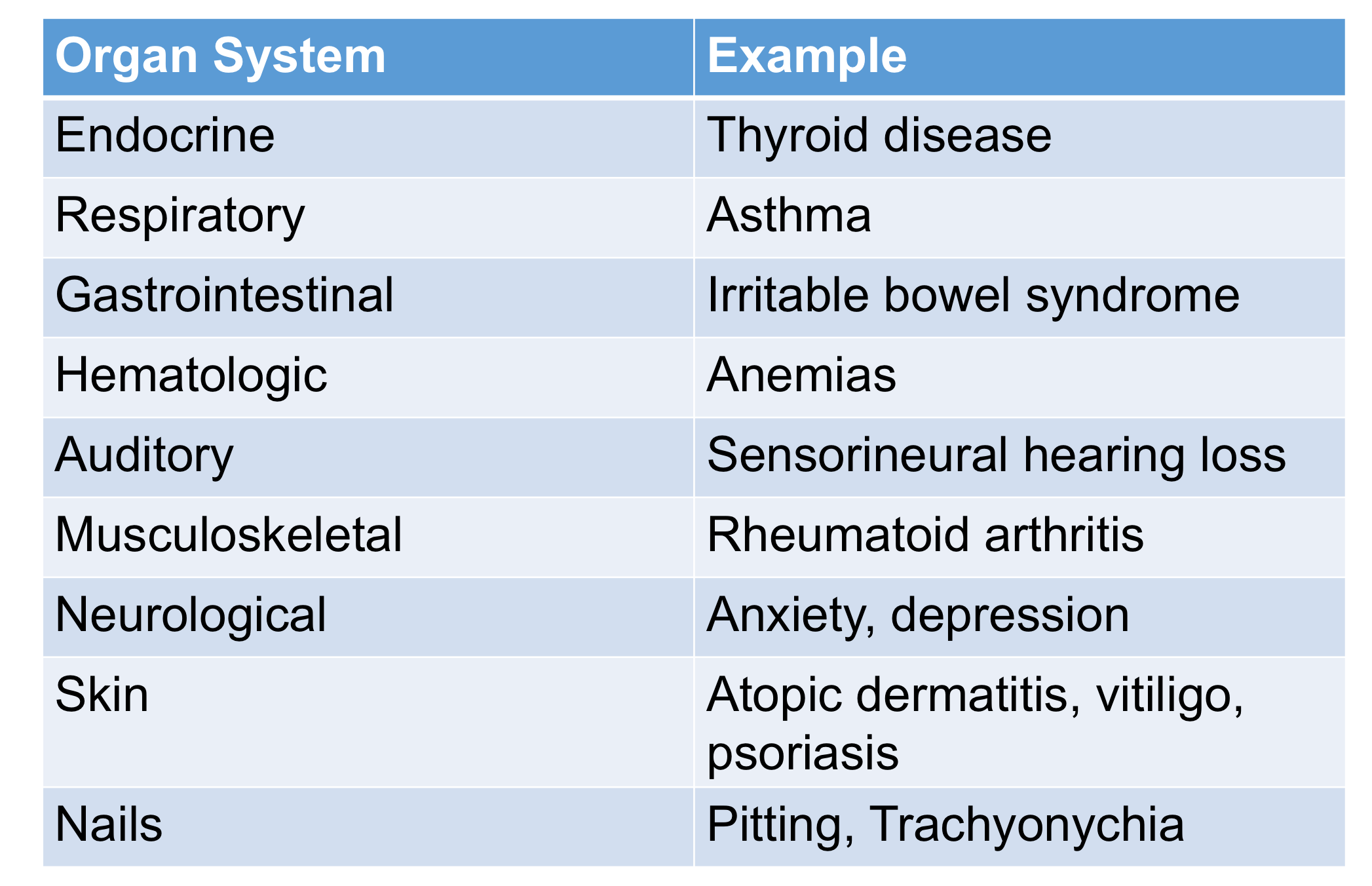Alopecia areata: Is it a medical disease?
Alopecia areata has widespread health implications
There are several expressions that we have in the English language that point to the fact that we as humans don't always feel comfortable giving things the name that they should be called. If you have even heard someone comment how they 'call a spade a spade a spade" or if you've ever been told to "stop beating around the bush" you know exactly what is meant by the idiom. In some ways the expression points to the need for effective communicators to "tell it as it is" and "call it as you see it."
Alopecia areata
A recent article, published by Korta and colleagues in the Journal of the American Academy of Dermatology titled “Alopecia is a Medical Disease” points to the position of alopecia areata as a true medical disease.
There is no doubt that alopecia areata fits the definition of a medical disease. However, after many years of being involved in support groups for alopecia areata throughout the world, I can tell you that many individuals don't consider their alopecia as disease.
"It's not a disease, Dr. Donovan. It's a medical condition of the hair"
"It's an autoimmune condition. It's like a disease, but not quite"
"It’s hard to describe, Dr. Donovan. I don’t have a disease like a disease disease”
"Dr. Donovan, alopecia areata is NOT a disease and even my dermatologist said so”
These comments are frequently similar among the 8 million people world wide who are directly affected by the condition today and the 140 million people that will become affected at some point in their lifetime.
I can tell you that many individuals with alopecia areata around the world don't like the use of the term disease. Some dislike it because they don't feel sick. Some don't like the label, stigma and stereotypes that come with having a disease. I can feel how the room changes when I breach the subject with my support groups. There is sometime shock that I, given the privilege to be welcomed in a group of alopecia patients, would consider discussing this condition as a disease.
What is a disease anyways?
It's surprisingly difficult to get everyone in a room to agree on the definition of disease. Yet, everyone knows intuitively what's meant by a disease. I remember the definition that I memorized in my first week of medical school. It was a definition from the World Health Organization ( WHO) which defined a health as "a state of complete physical, mental and social well-being, not merely the absence of disease or infirmity." Others define a disease as some type of disorder of the structure or function that produces specific signs or symptoms.
For alopecia areata, there is no doubt that it impacts physical, mental and social wellbeing for affected individuals. From a pathophysiological perspective, there is little doubt that it is a disorder of the immune system that affects that structure and function of the hair. So, from these criteria, alopecia areata is a disease.
So, why do some patients not consider it a disease?
Well, I’ve learned that defining a disease is not always so easy as the basic definitions allow give us permission to call something a disease. Whether or not a person or society considers they have a disease depends on various factors including societal and cultural factors. There has been a rapid expansion of what society calls diseases nowadays. (Ask someone 100 years ago what ‘texting thumb’ or ‘internet addiction’ was and I’m sure you’d be given some blank stares). In contrast, some conditions were viewed as diseases in the past and now have been ‘declassified’ from the list of diseases.
So classifying something as a disease is always open to some degree of interpretation. Many patients with alopecia view their hair loss as a disease. Yet, others do not. I think we as physicians and society need to fully understand these views.
The Importance of Calling Alopecia Areata a Disease.
From the perspective of a physician, it’s clear that alopecia areata is a medical disease. In fact, it’s a complex medical disease that can affect the patient from head to toe. As a specialist who cares for patients with alopecia, one needs to not only focus on the hair, but on a range of medical issues that might be present. These need to be evaluated during a consultation.
The following table summarizes the range of the more common medical conditions that need to be evaluated. Atopic dermatitis and thyroid disease are among the most common being present in 40 % and 20 % of patients respectively. In addition to the medical issues, quality of life is adversely affected by alopecia areata. These include anxiety, depression and sleep disturbances.
Partial list of disease associations in alopecia areata
Why we need to stop beating around the bush?
Alopecia areata can sometimes have a significant financial impact on patients and their families as well as insurance groups that pay for various services. There is a need to make sure that alopecia maintains its position among the medical diseases and gets the appropriate recognition it deserves. According to a recent Global Burden of Disease study which ranks the disability from having a specific disease, alopecia ranked higher than other common diseases such as psoriasis, melanoma and non melanoma skin cancer.
Disappointedly, Korta and colleagues remind us that funding for alopecia areata remains low compared to its disease burden. It’s time to change that and perhaps the best way that one can change that is by stop beating around the bush, call a spade a spade and say it like it is: alopecia areata is a medical disease.
It's important to position alopecia areata as a medical disease. It is important to have it recognized as medical disease in order to ensure that healthcare dollars and research resources are appropriated allocated to support this condition. Clearly, modern society has agreed that if one can't determine if something is a disease or not, it might not be worth allocating money to the area. Alopecia areata is a medical disease.
The hope is that by giving alopecia the title of a disease that it will get the recognition that it so deserves. Despite having over 25 treatments for alopecia areata on my list, it comes as a surprise to patients when I tell them that none are formally FDA approved. Making sure alopecia areata gets recognized as a disease is the first step to making sure insurance companies, drug companies, hospital, health agencies and research groups recognized alopecia areata in the way that it should be.
Alopecia areata is a medical disease.
Reference
Korta DZ, et al. Alopecia areata is a medical disease. J Am Acad Dermatol. 2018.
WHO (1946) Preamble to the Constitution of the World Health Organization. WHO, New York, USA
Karimkhani et al. JAMA Dermatol 2014.
This article was written by Dr. Jeff Donovan, a Canadian and US board certified dermatologist specializing exclusively in hair loss.


